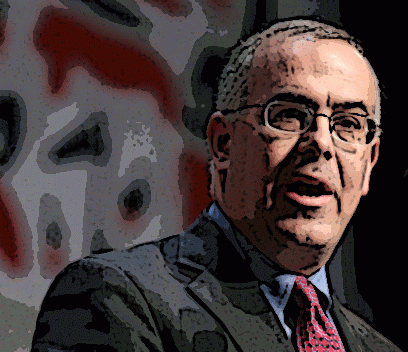Baloney.
First, when almost all the gains from growth go to the top, as they have for the last 30 years, the middle class doesn't have the purchasing power necessary for buoyant growth.
Once the middle class has exhausted all its coping mechanisms -- wives and mothers surging into paid work (as they did in the 1970s and 1980s), longer working hours (which characterized the 1990s), and deep indebtedness (2002 to 2008) -- the inevitable result is fewer jobs and slow growth, as we continue to experience. Few jobs and slow growth hit the poor especially hard because they're the first to be fired, last to be hired, and most likely to bear the brunt of declining wages and benefits.
Second, when the middle class is stressed, it has a harder time being generous to those in need. The "interrelated social problems" of the poor presumably will require some money, but the fiscal cupboard is bare. And because the middle class is so financially insecure, it doesn't want to, nor does it feel it can afford to, pay more in taxes.
Third, America's shrinking middle class also hobbles upward mobility. Not only is there less money for good schools, job training, and social services, but the poor face a more difficult challenge moving upward because the income ladder is far longer than it used to be, and its middle rungs have disappeared.
Brooks also argues that we should not be talking about unequal political power, because such utterances cause divisiveness and make it harder to reach political consensus over what to do for the poor.
Hogwash. The concentration of power at the top -- which flows largely from the concentration of income and wealth there -- has prevented Washington from dealing with the problems of the poor and the middle class. To the contrary, as wealth has accumulated at the top, Washington has reduced taxes on the wealthy, expanded tax loopholes that disproportionately benefit the rich, deregulated Wall Street, and provided ever larger subsidies, bailouts, and tax breaks for large corporations. The only things that have trickled down to the middle and poor besides fewer jobs and smaller paychecks are public services that are increasingly inadequate because they're starved for money.
Unequal political power is the endgame of widening inequality -- its most noxious and nefarious consequence, and the most fundamental threat to our democracy. Big money has now all but engulfed Washington and many state capitals -- drowning out the voices of average Americans, filling the campaign chests of candidates who will do their bidding, financing attacks on organized labor, and bankrolling a vast empire of right-wing think-tanks and publicists that fill the airwaves with half-truths and distortions.
That David Brooks, among the most thoughtful of all conservative pundits, doesn't see or acknowledge any of this is a sign of how far the right has moved away from the reality most Americans live in every day.






